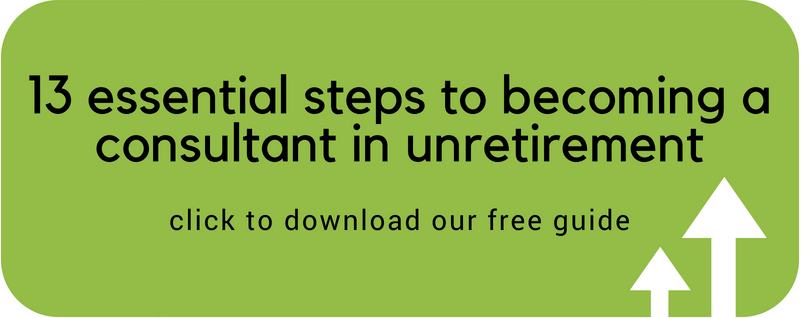Changing career in your 50s – how not to fall off a cliff!
18 October 2018 By Guest writer Pamela Major

Standing in front of my security cabinet in the Foreign & Commonwealth Office, I spun the combination lock for the last time. After 28 years, with postings in Beijing, Moscow, Berlin and London, I was about to walk out of a high-prestige, secure, established job, into – the unknown.
When people ask me why I left the Diplomatic Service, I always say there were push and pull factors.
On return to the UK after 8 years overseas, I knew I wanted to re-establish roots in London and stay. From my time as the No. 3 in the Berlin Embassy I also knew that I did not want to be an Ambassador: living in the public eye and socialising every evening with strangers did not appeal.
But it was the pull factors which triggered my decision to change career in my 50s. Coming back to London I took a job in the HR function running our coaching operation. I got to train as a coach myself and that was it – I fell in love with coaching and realised that the one-to-one contact and helping others to achieve their potential meant more to me than all the foreign policy in the world.
Nonetheless it took three years of agonising and if it hadn’t been for the support and challenge from my own excellent coach, I would never have made the decision to take early retirement and build a second career as a coach and workplace facilitator. Why not?
It’s scary!
After 28 years, a workplace becomes more than just that. It is a place where you feel a sense of achievement and competence; you have made friends; you have a common culture and language where you feel you belong. The thought of losing all that overnight paralysed me. But my coach introduced me to the helpful concept of ‘wedges’. Rather than think of career change or retirement as a perilous leap from one high block, over a cliff edge, to another, the transition could be gradual, with the career diminishing then tailing off as the post-retirement phase starts up and blossoms.

How to make this work? Could you reduce your hours in your job to start building your post-retirement dream one day a week? Use your evenings to lay the foundations of your new career? Find opportunities in your current job to branch out into your areas of future interest? And once you start the transition, don’t fail to draw on any expertise, support or contacts from the past career – there will be more there than you think.

Who will I be?
The idea of being asked what I do and no longer being able to say “I work for the Foreign Office” appalled me. In fact, for some months after I retired, my answer was “I used to work for the Foreign Office”! It is hard to let go of the status a career gives us, especially when you don’t yet know the new answer, or the answer is “I’m retired”.
So a good hard look at your sense of self is inevitable. What really matters to you? What are you proud of in yourself that isn’t tied to your career? Experiment with introducing yourself in different ways even before you leave. And reflect on the question – what that you value in yourself does your current career suppress or inhibit?
What will I live on?
I was lucky; I had the cushion of a partner in full-time employment so there was a period of grace before I had to be bringing home any bacon. But the money side of it was nonetheless also scary. The best advice I got about this was to examine my finances ruthlessly: you may have more options than you think. What expenditure could you forego? How much do you actually need to function month to month? What other resources can you draw on – home equity, loans, friends – to tide you over. And remember the wedge model – you may not need to give up all previous income before you establish your new source of earnings.

So how did changing career in my 50s work out?
Eight years on, three things stick in my mind:
- from the moment I spun that combination lock for the last time, I never had a moment’s regret about changing career in my 50s. The first few weeks were euphoric, like coming out of decompression; I realised how much of ‘me’ my former career didn’t nourish. Luckily, it wasn’t too late; I have found work which I love, earns me a sufficient income and gives me time to pursue other interests dear to my heart;
- at the same time, I never regretted my Foreign Office career. It gave me so much, both personally and professionally. It was an integral part of the journey that brought me to where I am now;
- finally, don’t underestimate the powerful force of serendipity. Many leads which I thought would bring me future work went nowhere. But this was more than compensated for by the chance encounters and thrilling surprises once I got out there networking, as well as the dormant contacts which magically started coming out of the woodwork.
Of course, I also had moments of despair and uncertainty. There are many challenges to changing career in your 50s and it seems a much safer option to plough on until ‘real’ retirement. Only you know what you might miss if you don’t take that chance.



